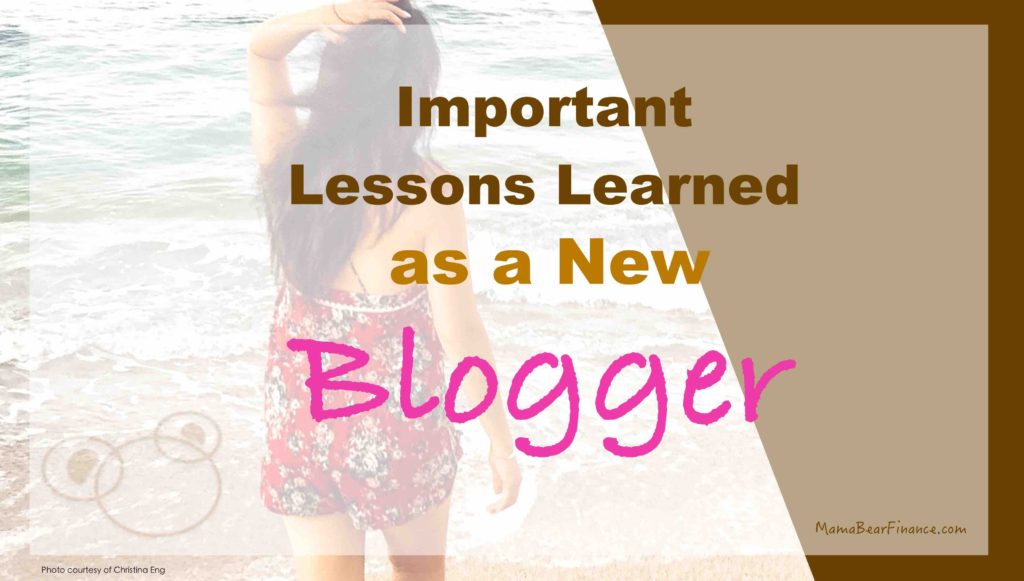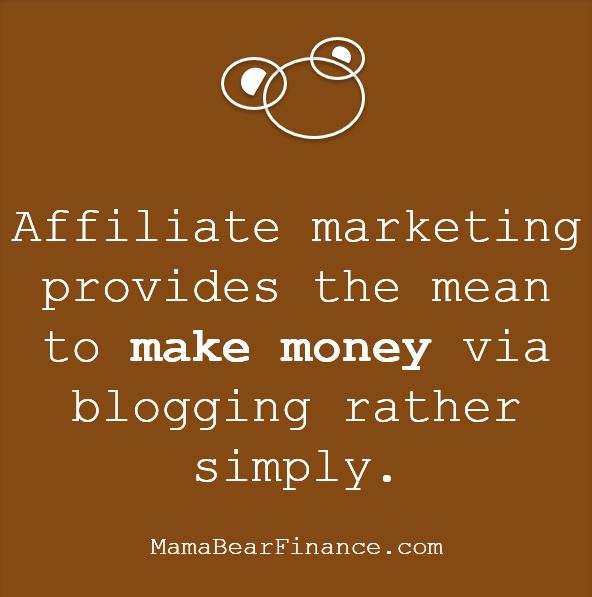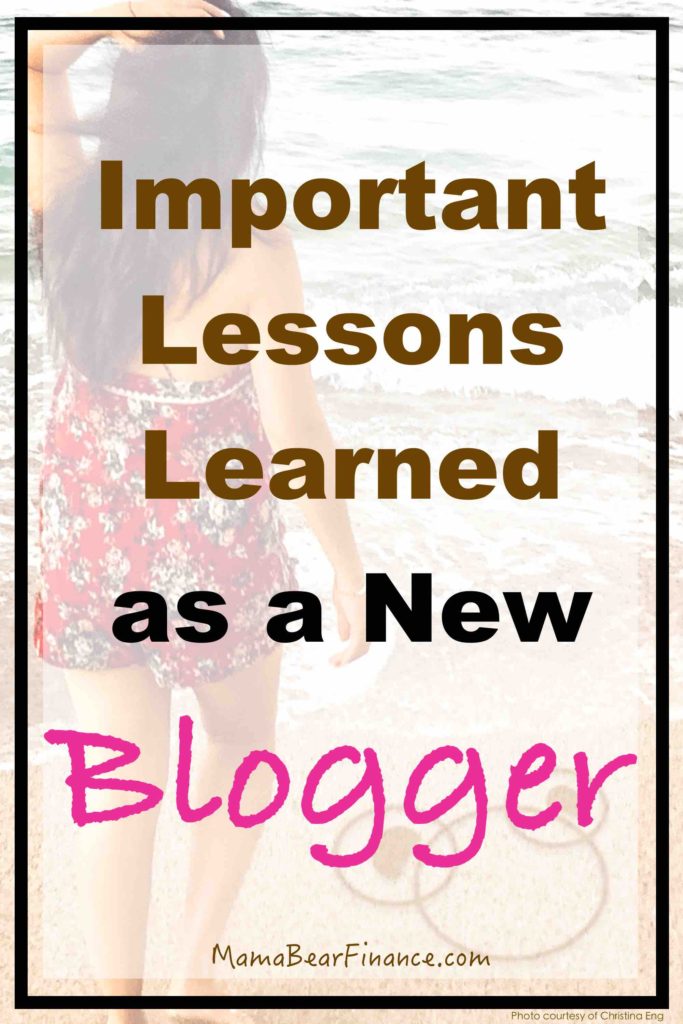
New bloggers are often overwhelmed by the lessons learned in the beginning – yeah, I’m talking about myself!
To keep track of my progress, I will document my blogging adventure in a quarterly update. This will be the first one, Part II.
Previously, we have learned the following three important lessons:
- How to use SEO to drive traffic and expand readership
- How to run a blog like a business
- What are the blindsides to blogging for beginners
Today, we will continue with the final two lessons learned:
- The upfront (and hidden) costs of starting a lucrative blog
- It’s all about MARKETING if you want to become a savvy blogger
Let’s get started!
This post may contain affiliate links, which means I may receive a commission, at no extra cost to you, if you make a purchase through a link. Please see my full disclosure for further information.
Lesson #4: The upfront (and hidden) costs of starting a lucrative blog
Look, blogging should be free if you only want to do it for fun. Just look up “How to blog for free” and you’ll find a host of resources to start a blog without paying a dime.
And you shouldn’t pay a dime if you have no desire to run it like a business.
However, if you have the intention to start a lucrative blog, then you should invest in it like you would in any business. To start, it’s recommended that you own your internet real estate by purchasing self-hosting and a domain name.
Doing so is important as it will give you the flexibility to monitize your blog and a higher chance to be featured by large media sites (since free blogging sites get less exposures).
In addition, here are other costs you should consider.
The hidden cost of running a website
Before I started this blog, I thought the only upfront cost I had to pay was self-hosting. But soon after, I learned about an additional upfront (hidden) cost that pertains to the legal aspects of running a website.
Did you know that there are privacy policy laws in place that mandate any website, a blog included, to disclose a site’s privacy policy and cookie policy?
This is why you see those annoying “cookie notice” pop-ups in established sites including my tiny blog here (sorry)!
It’s there to protect you as a visitor and us as site owners.
Who goes out to sue a website for privacy issue, I have no idea. But the recent headline about Google and Facebook violating the European GDPR had unnerved many site owners.
“If upheld, the complaints could result in more than £3bn in fines for each company.” – The Guardian
While I’m no big time blogger, I do want to stay compliant with the law nonetheless. Therefore, I purchased the legal templates drafted by a lawyer to keep this website stay up-to-date (legally).
It boggles me that some large blogs (especially those in the U.S. or Europe) don’t even have any legal disclosure about privacy policy or affiliate marketing.
This is risky business as the contents they provide can be perceived as misleading to their readers if they display affiliate links without disclosing it. Not to mention they’re putting themselves at risk of fines and lawsuits for privacy matters.
And this is a huge lesson that I learned from just four months of blogging.
Since I’m a proponent of learning, I took this free legal course to learn about how to blog legally and protect my website.
I also took up the initiative of reading the FTC’s guideline on endorsements since I participate in affiliate marketing (more on this below).
While I’m not excited about the legal aspects of blogging, I do find them essential as I increase my knowledge of running a website.
Treating a blog like a business requires further investments
So now that we got our upfront and hidden costs (self-hosting fees and legal templates) out of the way, I also learned that starting a blogging business requires further investments.
Indeed, many of the unicorn bloggers have recognized that making investments early was the launch pad for their success.

These investments include (but are not limited to):
- Subscription tool (email marketing) to grow your audience
- Graphic design tool to make your blog post pop
- Grammar checker tool to ensure your article is in tip top state
- Paid stock images to avoid copyright infringement (beware of free stock photos online!)
- Social media scheduling tool to reduce workload
- E-books and online courses about blogging (e.g. Pinterest, SEO, etc.)
- Premium (i.e. paid) WordPress theme to stand out from other blogs
- Premium (i.e. paid) plugins for upgraded services
- Paid social media or search engine ads (if you’re THAT ambitious)
But wait! Don’t think that just because you invested in your business that you’ll see an immediate return.
Unlike a financial investment where the expected return can be valuated, an investment in blogging is directly tied to your effort.
For example, if you purchased an e-book or course about how to blog successfully, but you don’t have the drive to implement what you learned, then your return on investment is essentially ZERO.
Similarly, you can pay for a grammar checker, but if you’re not writing quality contents that draw in audience, then a perfectly grammar-free article might not do much good.
See what’s happening there?
Although investing in a business is an important way to grow, it’s not a passive strategy.
This means that you must actively put in an effort to make those investments worthwhile.
So, just take it one step at a time. Start by setting up self-hosting and protecting your blog with legal templates, then evaluate what you need to develop your business further.
Baby steps – slow and wobbly could win the race.
Lesson 5: It’s All About MARKETING If You Want To Become A Savvy Blogger
Unbeknownst to me when I created this blog is that I would become more of a marketer than a writer.
After all, my content means nothing if it’s not being consumed by an audience (like YOU, so thanks for being here!).
In just four short months of starting this blog, I’ve already learned about digital marketing, affiliate marketing, content marketing, social media marketing, and the ’80/20′ marketing rule.
Let’s find out what those are, shall we?
Digital Marketing
A savvy digital marketer or digital marketing manager is one who can master online mediums to draw in traffic for an online business.
In the blogging world, digital marketing involves:
- attracting new readers by mastering SEO;
- analyzing where the traffic is coming from using Google Analytics and identifying weaknesses and opportunities; and
- developing a digital strategy to create brand awareness and generate leads
Digital marketing is rather a new field in the marketing world.
Gone are the days when Marketing Managers come up with new product ideas and push them out to sell; These days, a Digital Marketing Manager is an expert in data mining and figuring out the right algorithm to pull in online users or customers.
While blogging is not as sophisticated as developing an algorithm, there are things a blogger can do to expand reach such as analyzing online traffic data.
For example, in my earlier posts, I wrote about traveling with a baby, maternity leave, and cloth diapers.
While these are contents I enjoyed writing, I noticed that they do not generate as much engagements nor traffic as my recent posts on finance.
In fact, here are my top three most read (or clicked) posts:
Since these articles generate the most traction, it’s clear to me that I should focus on developing more finance-related contents.
But I’m just a NEW blogger who never liked writing until now (something I admitted here), so I’m already amazed that I’ve even written at all!
So bare with me, please, as I try to get better at it!
Affiliate Marketing
Many bloggers who started a self-hosting blog have the intention of making money through it.

Affiliate marketing provides the mean to make money via blogging rather simply.
The mechanism is actually quite beautiful and one that I really enjoyed experimenting on this blog.
Here’s how it works:
First, a blogger will develop contents related to his/her niche. For example, mine is mainly about personal finance with a bit of lifestyle.
Then, through developing these contents, there will be gaps where the blogger could enhance reader understanding by providing sources. For example, whenever I mention a product I used for my baby, I can provide an Amazon link.
This link is where you, the reader, can click and should you make a purchase, I will receive a small commission from Amazon, but at NO ADDITIONAL COST to you.
Amazon receives a sale through the backbone of my hard work, I get a commission for making the suggestion on my blog post, and readers get to benefit from the free resources that I provided. Win-win-win.
However, it’s important to note that a few affiliate sales won’t be enough to pay the bills. Any blog or business website that is profitable relies on volume to succeed.
Hence, mastering SEO and creating quality contents are keys to generating higher traffic, which leads to higher chance of profitability.
Content Marketing
Content marketing is indirectly related to affiliate marketing whereby writing valuable contents that benefit readers will have a positive effect on generating affiliate sales.
This is under the critical premise that bloggers must GENUINELY endorse certain products that they find valuable to their readers.
In the traditional sales model, there is no such relationship.
The old school marketing technique is generally about flashy advertisements that catch your eyes and entice you to make a purchase.
This sales model is outdated as information become prevalent today (e.g. online product reviews) which means buyers are becoming more conscious about the value of a product.
Hence, the internet has contributed to the rising superpower of online “influencers,” which is still a relatively new concept.
Through blogging, I began to gain a sense of appreciation for marketing as it requires me to mute my logical, analytical side to get in touch with my emotional side.
Indeed, content marketing is mostly about the ability to connect with the audience and build contents that are authentic and provide value.
In essence, a blog can act just as much a journal for thoughts as a “content writing service.”
Social Media Marketing
When I started my entry level job at a Los Angeles-based private bank, the use of Facebook was blocked.
The reasoning behind this was to deter employees from getting distracted by social media.
But the very next year, the company UNBLOCKED Facebook and other social media platforms. They then proceeded to send a memo to all employees asking us to LIKE its company profile.
W. T. F.!
This was hypocritical to say the least, but there’s an important lesson to it:
Companies cannot afford to ignore the power of social media marketing.
For bloggers, this statement can’t be more prominent.
Social media marketing is an effective way to expand a business (or readership) and attract new customers (or new readers).
For blogs, the top four effective social media tools are Facebook/Instagram, Twitter, and Pinterest (currently).
Although Pinterest is more of a search engine than a social media, it’s actually a powerful tool to attract new audience.
This is why you’ll see “pinnable” pictures on blog posts, including mine which you’ll see at the very bottom. I’m learning how to leverage Pinterest as a way to increase traffic just like SEO.
There are numerous Pinterest strategies that one can implement. I’m still learning so I’ll share more once I understand them better.
The ’80/20′ Marketing Rule
Imagine you spent 100% of your time writing an awesome content, but then NO ONE clicks on it.
That’s the nightmare of any blogger, I presume.
Therefore, if one wants to run a blog like a business, then paying attention to marketing is very crucial.
The 80/20 marketing rule dictates bloggers to spend 80% of their time promoting their blog and 20% of the time in developing contents.
This is because despite how wonderful a blog post may be, it becomes arguably worthless if no one consumes it.
Essentially, a small business that is not growing is dying.
Therefore, as much as I’m not a marketer (I’m more of a “financier”), I forced myself to develop new marketing skills.
So far, I’m really enjoying the “digital marketing” aspect. What I liked the most is the ability to analyze data thanks to Google Analytics as well as connecting with others via social media.
I enjoy understanding what works on my blog based on what the data and my audience are telling me.
If you’re interested to review the analytical data of my blog, then stay tuned for upcoming quarterly updates.
(Please don’t forget to SHARE, comment, subscribe, and like me on Facebook.)
If My Lessons Learned Have Deterred You…
…then great! I’ve just helped you to avoid wasting unnecessary money and time!
Even though blogging is a rewarding endeavor, it’s certainly not easy-peasy nor is it made for everyone.
As a matter of fact, I’ve been an avid reader of blogs for two years before creating my own, and consuming free, thought-provoking contents can be just as rewarding.
To sum up, blogging nowadays has an immense potential to turn a passion into a viable business or side income, but it takes effort and patience (just like any business).
With the aid of today’s technology, blogging has become a sophisticated network of giant machine.
Through other bloggers and online resources, I was able to develop new skills in SEO, digital marketing, and how to turn a blog into a business.
Even though there are upfront costs associated with starting a lucrative blog, these costs are minuscule comparing to starting a traditional brick-and-mortar business (like a restaurant or a store).
Just like in any business endeavor, you need patience, nurturing, and investment to grow.
Furthermore, if you’d like to explore a new avenue to diversify your income source, then starting a blog is no-brainer, especially if you enjoyed writing.
I’m fully aware that my strength doesn’t lie in writing, but here I am! I don’t believe one needs to be a great writer to become a successful blogger, but it does take determination, perseverance, and a dash of one’s unique quality (e.g. personality, skills, sense of humor, etc.).
If you have read this far, then you must be a blogger or you’re interested to become one (OR you just love my writing so much that you can’t look away). In any case, I encourage you to take the plunge if you haven’t felt deterred by my lessons learned yet, for:
“The best time to plant a tree was 20 years ago. The second best time is now.” – Chinese Proverb
To start a blog, you can check out Bluehost (which offers 1-year free domain name and “1-click WordPress install”) or Siteground.
Then, learn to protect your blog like a business (because it’s a website after all!).
Finally, get ready to put all your focus and creativity into it. Enjoy!
Related: Why I Blog: Reflections of My First 3 Months of Happily Blogging

Have you ever blogged before? If you’re currently a blogger, what are some of your lessons learned? If you’re not a blogger, why not?
Be a PINster




I love blogging but there are definitely so upfront costs that people don’t think of. Like the legal pages and all the other things like classes and premium plugins that make life easier! If I hadn’t spent some money on classes I would be much further back in my journey.
This was a great read, love your perspective on these! Really helpful for new bloggers to be aware of things like the hidden costs that no one seems to want to mention before they get you signed up with Bluehost! ❤️
Free blogging – wasn’t that a nice dream?:) blogging is WORK and a lot of it. Part of what I love about it is how many new skills, and new areas of expertise I have to dive into to maintain my little corner of the digital world. I love that you highlighted the fact that actually creating the content is the least of the work, I think it’s something new bloggers should be super aware of. Thank you for sharing this.
Thank you for the tips! I really enjoyed reading your blog and can’t wait to start one soon! Keep writing girl!
Thank you. 🙂
So many great tips! I still haven’t done the cookie pop up yet 🤦🏼♀️ But I do have a privacy policy in place! The laws around blogging blow my mind – I had no idea how in depth it all was before I started! Thanks for this post!
Same here! The legal aspects of creating a website have seriously never crossed my mind before! Part of the reason I’m documenting this is to see how far I evolve (and learn) as time goes by 🙂
There are so many gems in this post! Thanks for sharing all your knowledge.
My pleasure! Thanks for dropping by 🙂
Very informative post. It can be surprising how much things cost once you start looking at blogging as a business. I also loved that you shared how blogging involves so much marketing. When I started blogging I had no idea how much marketing and SEO I would need to learn.
Thanks! Same here, the learning curve to blogging is quite steep and that includes marketing!
Such a helpful reality check for many, there is a lot of misinformation out there about blogging and how to do it correctly and cheaply. Hopefully, they don’t learn the hard way!
I think free blogs are okay for those who truly couldn’t afford the initial investment of starting a self-hosted blog or for those who only want to blog for fun with no intention of growing. Otherwise, it’ll be a hard lesson for sure.
Great post thanks and I’m pleased you learned so early that ‘blogging for free’ is rubbish! I confess it took me longer than it should have done to realise that just because you’re online you can’t suspend common (business) sense.
My first THREE free blogs were total rubbish and I hope they have been lost in the digital dust they deserved to be confined to. Unfortunately I still see people being misled into thinking you can just sling up a blog and traffic and sales will come easily. Wrong!
I enjoy the writing side of blogging more than the marketing, but sadly have to accept that there’s no point in writing if no-one is reading your words.
Joy Healey – Blogging After Dark
Hey there! I think I just got lucky that I never liked writing so I entered this “blogging business” very late haha. And now that I entered, there’s so much resources available to help guide me. Therefore, paying for self-hosting and the legal templates were no brainer.
Thanks so much for your your valuable feedback as an experienced blogger. I think it might be enticing for newbies to create a blog for free (I mean why should you pay when there’s free alternative?), but then they might find out the hard way that a free blog is very limited. I’m glad that I forked out a couple hundred bucks to create this blog as it’s well worth the investment and the potential is truly limitless!!
Absolutely love this post! I am just starting my blog and there was so much useful information!
Glad you liked it. Good luck with your new blog 🙂
Thank you so much for this! I had no idea about the legal concerns! That’s something I need to look into!
You’re welcome! I didn’t know about the legal concerns until after I started this blog. But it’s interesting learning though.
Such a good post. I know these were a lot of my concerns I have figured out along the way. A post like this would have been very helpful on my journey of starting my blog.
Thanks for your feedback. I felt quite overwhelmed starting this blog and thought if I jog down what I learned I can reflect back and see how I’ve evolved. It’ll be great if it could help others too!
Great blog! Yes, it is so important to invest in your blog for it to grow. Also blogging is only for the patient for sure!
Thank you! I planned to invest more on SEO courses down the road.
Thank you so much for this list! Especially the legal concerns .
You’re welcome. The legal aspect of blogging is really new to me but I find them important to understand as a website owner.
These are such important things to know as a blogger! I’m new to blogging and still learning about a lot of this!
With time, we’ll get better 😉
These are awesome tidbits. Blogging is easy, but blogging for money is not. And too many new bloggers confuse the two. Treating it as a business is key!
Ahhh, yes! For some reason, treating a blog like a business comes way easier for me as it means I don’t need to have too much emotional attachment. But alas, I think I’m developing some kind of emotional attachment to this blog hence I’m treating it more like a side project than a full-on business!
I really like this post. I do feel like most people think blogging is very easy and they don’t realize how much work is actually involved before and after you hit publish.
Totally! I think the notion of blogging for fun is still prevalent in most people’s mind today, while the reality of modern day blogging is much more sophisticated. I’m glad I joined in on the fun haha.
Thanks for this information! I am a new blogger and new to computers as well, I am proficient at home and in the kitchen but wanted more. I feel I have so much to learn that paying for a course before I understand the basics would be futile. Thanks for sharing your experience.
I totally get ya. I find it more helpful to explore what’s there before committing to a course. Some bloggers will refute this logic, but that’s okay. We’re all at different pace. I prefer to take it slow.
A lot of great information here. Liked how you broke down to the online influencers being what’s relevant today.
Thanks, I’m trying my best to make sense of all things “digital” and it’s quite interesting!